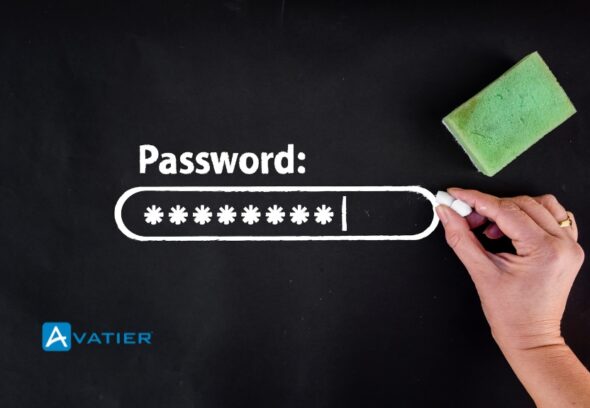Password scams are one of the most popular ways through which hackers get unauthorized access. The victims of these scams may end up suffering from severe losses as well as the organizations. In order to eliminate this danger, it is necessary to teach the staff about password frauds and enable them to identify and avoid possible threats. Through the implementation of training programs, resource provision, and a stance of vigilance, businesses can effectively protect their sensitive information.
Password Scams Awareness and the Need for Employee Reporting
The initial stage of empowering your employees in identifying and avoiding password scams is to teach them about the different kinds of scams and the imminent dangers they pose. Password scams come in the form of phishing emails, spoofed login pages and social engineering attacks. The employees should realize that these scams are created to make them reveal their passwords or other sensitive data.
More so, it is very necessary to reiterate the need for reporting immediately any strange activity. A lot of employees may be reluctant to inform about a scam due to the fear of punishment or humiliation. Nevertheless, the trust environment and an open communication culture are the main weapons against the password scams. Ask the staff to inform about any suspicious email, any strange log in attempt or any other signs of possible scam. In this way, they can become an active participant of the company’s data security and hence, avoid the possibility of a security break-in.
Trainings and Materials for Enhancing Employees’ Awareness of Password Scams and Avoidance
For a successful empowerment of employees in the identification and prevention of password scams, appropriate training programs and resources are vital. Such programs should include discussion on password management, identification of phishing attacks, and securing sensitive data best practices.
Begin with training employees on the significance of developing strong, unique passwords. Promote the use of password managers that can create strong passwords and save them safely. Further, stress the importance of changing passwords periodically and the risks associated with having the same password for multiple accounts.
The training programs should also have simulated phishing emails and other popular scam methods. Training should be given to employees on how to recognize suspicious emails like those asking for confidential information or coming with unknown attachments. Through practical cases and interactive training exercises, employees will be able to acquire skills of recognizing and avoiding potential scams.
The Part of IT Departments in Avoiding Password Scams and Ensuring Security of Data
However, the preventive measures of password scams and data security is the duty of IT department. IT professionals are critical in the implementation of security measures and monitoring for threats on an ongoing basis.
To begin with, IT departments should deploy strong security protocols, for example, firewalls, antivirus software, and intrusion detection systems. These controls provide defence against external threats and are capable of identifying and eliminating activities that are suspicious.
In addition, IT departments should keep updating software and systems to fix any holes that hackers could use. This also involves upgrading the operating systems, web browsers, and software applications among others. Routine system maintenance is critical in avoiding password related scams and securing sensitive information.
Further, 2FA should be enabled and enforced by IT professionals for all accounts with sensitive information. Additionally, 2FA enhances the security by requesting additional form of authentication from the users, for instance, unique code sent to their mobile device, in addition to their passwords. This greatly minimizes the possibility of an unauthorized entry even if a password is known.
Implementing Two-Factor Authentication and Countermeasures for Password Scams
Two-factor authentication (2FA) is one of the best security precautions for businesses to guard against password phishing. Also, 2FA demands an extra form of verification, thus making it almost impossible for hackers to break into the system without the owner’s permissions.
In order to implement 2FA, businesses can use different approaches like SMS codes, email verification, or hardware tokens. The method selected should be suitable for employees and the organization as a whole. Besides, 2FA protocols should be periodically reviewed and updated by IT departments for them to be effective in the face of new threats.
Apart from 2FA, other security steps should be taken to prevent password scams. These are network segmentation that isolates sensitive data from the other network resources and encryption that secures data at rest and in transit. Data backups must also be performed regularly in order to minimize the effect of a possible security breach.
Conclusion: Empowerment of Employees to be vigilant on Password Scams and Company Data Protection
In summary, password frauds are a major hazard to businesses in the modern digital world. Nonetheless, through proper education of the employees, training programs and resources as well as implementation of strong security measures, organizations can enable their staff to identify and avoid the threats. It is important to develop a vigilant culture and prompt employees to report any questionable activity immediately. This way, businesses can secure their sensitive data and protect themselves from the dreadful consequences of the password scams.
Begin your free trial today and make the first move to enable your staff to detect and prevent probable password scams. There is the possibility to develop a strong defense against cyber threats and protect your company’s data, provided that you have the appropriate training and resources.




